Most people think any red light therapy device will do the trick, but that's not really how it works. Different devices are built for different jobs - some focus on skin issues, others go deep for muscle problems, and some are designed to be super portable while others give you full-body coverage. Your best bet depends totally on what you're dealing with, whether that's joint pain, skin concerns, or general recovery. Getting the right match is what separates people who love their results from those who wonder why they bothered.
What Makes Red Light Therapy Truly Effective?
Red light therapy uses specific wavelengths of light to stimulate your body's natural healing processes, but not all devices deliver the same results. The effectiveness comes down to choosing the right type of device for your specific health goals and treatment areas.
1. Light Penetrates and Triggers Healing
Red light therapy works by sending light photons through your skin to reach cells underneath. These photons kickstart beneficial reactions like increased energy production, reduced inflammation, and faster tissue repair. Think of it like giving your cells a gentle boost to do what they naturally do, but better.
2. Different Devices Use Different Approaches
Not all red light devices are created equal - they vary significantly in wavelengths, power output, and coverage areas. A small facial device operates completely differently from a full-body panel or flexible joint wrap. Each type is engineered to target specific problems using particular combinations of light frequencies.
3. Matching Device to Purpose Matters Most
The person getting great results from a red light belt for back pain won't necessarily see the same benefits using that device for facial skin care. Success comes from choosing a device that's actually designed for your specific concern, whether that's joint pain, skin issues, or muscle recovery.
4. Targeted Relief Requires the Right Tool
Generic approaches rarely deliver optimal results in red light therapy. When you match the right device type to your particular health goals and treatment areas, you set yourself up for the kind of targeted relief that makes the investment worthwhile.
How Does Red Light Therapy Actually Work in Your Body?
Red light therapy works by sending specific types of light into your body, where your cells absorb this light energy and use it to heal and repair themselves more effectively. Different devices use different combinations of light types and strengths because they're trying to reach different parts of your body and solve different problems.
Your Cells Convert Light to Energy
When red light strikes your skin, your cells' little power plants (mitochondria) absorb this light energy. They use it to produce additional cellular fuel, which provides your cells with added energy to heal quicker and perform better. It's essentially like charging your cells so that they can perform at their optimal levels.
Various Colors of Light Travel Different Distances
Red light is nearer to the surface and is great for targeting issues like wrinkles or small cuts. Near-infrared light (which you can't actually see) goes deeper and may reach your muscles and joints several inches below your skin. That is why a model meant for your face uses a different light than one meant for back pain.
Deeper Light Reaches More Problems
The deeper the light penetrates into your body, the more types of issues it can help resolve. Surface light is perhaps only capable of helping with surface problems, but interior light can enter into painful muscles, stiff joints, and other tissues causing you distress. Think of it like putting lotion on your skin compared to taking medication that impacts you internally.
Each Device is Built for a Reason
Face devices target the red light that's best suited for skin health, whereas muscle pain devices utilize more of the deeper penetrating light. The top-notch devices tend to utilize a combination of both to target multiple problems at once. That's why using the incorrect device for your concern is akin to attempting to repair a car engine using a kitchen knife - just not the correct tool for the job.

Why Do Red Light Panels Remain So Popular for Different Health Goals?
Red light therapy panels are probably the most versatile type of device you will come across, and this is precisely why they remain so popular with beginners and experts alike. They come in all different sizes and LED configurations, making them perfect for everything from facial skin care to full-body muscle therapy and pain relief.
1. Small Panels Target Special Area Problems
Desktop-sized panels work great for taking care of specific areas like your face, a sore shoulder, or an individual injury. These compact units have fewer LEDs but still serve the purpose of delivering focused light to a specific point on your body. They're perfect if you only have one main problem area and don't want to spend money on a gigantic device.
2. Large Panels Cover More Ground at Once
Full body panels will cover your entire back, torso, or multiple areas at once, so they are much more effective for overall health or multiple trouble spots. The bigger panels are made up of hundreds of LEDs that are specifically designed to provide uniform coverage of large surface areas. If you experience widespread muscle pain or want to experience general health benefits, bigger panels are a time and effort remover.
3. More LEDs Usually Means More Power
The number and placement of LEDs directly affect the amount of therapeutic light you're getting and how evenly it's distributed. Panels with higher numbers of LEDs can deliver greater doses of light and blanket space more evenly, whereas panels with lower numbers of LEDs can result in hot spots or reduced coverage. Think of it as the distinction between a flashlight and a lamp in a room - more sources give you more, more evenly distributed light.
4. Panel Selection Depends Upon Your Treatment Goals
If you're only interested in treating skin on the face, a small panel of the right wavelengths will work perfectly. If you're looking to recover from exercise or to continually relieve pain, you'll probably find you need something larger that can treat larger areas properly. The key is to find a panel size and power that suits how much of your body you want to treat and how often you want to use it.

Why Are Red Light Therapy Belts Perfect for Busy People?
Red light therapy belts offer the ultimate convenience by letting you get treatment while you go about your daily activities. These wearable devices wrap around specific areas of your body, delivering targeted red light treatment hands-free so you can work, relax, or move around during your session.
1. Hands-Free Treatment That Fits Your Schedule
Unlike panels that require you to sit or stand in one position, RLT belts strap on and stay put while you do other things. You can wear them while working at your desk, watching TV, or even doing light household tasks. This makes it much easier to stick to a consistent treatment routine without disrupting your day.
2. Perfect for Common Problem Areas
Most RLT belts are designed to target the most common pain and discomfort zones - your lower back, abdomen, and joints like knees or elbows. These areas are often hard to treat effectively with larger panels because of awkward positioning. Belts conform to these curved areas and deliver light right where you need it most.
3. Dual Wavelengths for Better Results
Quality RLT belts typically combine 660nm red light for surface benefits with 850nm near-infrared light for deeper tissue penetration. This combination means you're getting both skin-level healing and deeper muscle and joint relief in one treatment. It's like getting two types of therapy at the same time without needing multiple devices.
4. Portable Design for Treatment Anywhere
Most therapy belts are lightweight and battery-powered, so you can use them at home, work, or while traveling. They're much more portable than panels or other stationary devices, making them ideal if you need consistent treatment but have an unpredictable schedule. You can literally take your red light therapy anywhere you go.

Why Do Red Light Wraps Work So Well for Joint Problems?
Red light therapy wraps are designed with flexibility as their main advantage, allowing them to conform perfectly to the curves and contours of your joints and other hard-to-reach areas. These bendable devices can wrap snugly around knees, shoulders, elbows, ankles, and other joints that don't work well with flat panels or rigid belts.
1. They Bend and Shape to Fit Perfectly
Unlike stiff panels, RLT wraps are made with flexible materials that mold to your body's natural curves and angles. This means you get consistent light coverage around your entire knee, shoulder, or elbow rather than just hitting the flat surfaces. The flexible design ensures the LEDs stay close to your skin for maximum light penetration.
2. Ideal for Joint-Specific Problems
Wraps excel at treating joint issues like arthritis pain, sports injuries, or general stiffness because they can surround the entire problem area. Whether it's a swollen knee from running or a stiff shoulder from sleeping wrong, wraps deliver therapeutic light from multiple angles simultaneously. This 360-degree coverage is something flat devices simply can't match.
3. Lightweight and Travel-Friendly
Most RLT wraps are even more portable than belts because they're designed to small and weigh very little. You can easily pack them in a gym bag, suitcase, or even a large purse for treatment wherever you are. This makes them perfect for athletes, frequent travelers, or anyone who needs consistent joint treatment on the go.
4. Secure Fit That Stays in Place
Good RLT wraps come with adjustable straps or velcro closures that keep them snug against your skin during treatment. This secure fit means you don't have to hold the device in place or worry about it shifting around while you move. You can wear them during gentle activities or while resting, making treatment both convenient and effective.

Why Red Light Mats Are Best for Relaxation and Wellness
Red light therapy mats are designed for comfort-focused treatment sessions in which you can lie back and relax while you get therapeutic coverage with light over extensive areas of your body. The mat-form devices offer a spa-like atmosphere more than other RLT devices, so they are best suited to stress relief and overall wellness rather than the targeting of certain injuries.
1. Lay Down and Remain Calm During Treatment
RLT mats enable you to stretch out comfortably while receiving your light therapy, converting treatment time into real relaxation time. You can lie on your back to treat your whole front torso or roll over to cover your back, and it feels more like a wellness session than medical treatment. This lying-down process is specifically for those who want to relax during their therapy.
2. Half-Body Coverage for Inclusive Benefits
Most therapy mats have a coverage area of about half your body at a time - upper half or lower half depending on how you sit or lie down. Having this larger coverage area means you can treat more areas simultaneously rather than only one area. It's good for people who need overall wellness benefits rather than needing to work on an individual trouble spot.
3. Made for Stress Relief and Overall Wellness
Whereas other machines are designed to address specific pain sites or injuries, RLT beds are best for stress relief, sleep improvement, and overall health and well-being. The relaxing treatment position combined with gentle light exposure can potentially calm your nervous system while providing cellular benefits. Others would include them as part of their evening wind-down routine or morning wellness ritual.
4. Easy Home Spa Experience
Home half-body RLT with mats is really a no-setup affair at all - just roll out the mat, step up onto it, and start your session. No awkward positioning or device holding is necessary, which is one of the reasons why it's so convenient. That convenience makes it easy to maintain a routine for good health with no difficulty or distress.
Why Are Red Light Therapy Beds Considered the Gold Standard?
Red light therapy beds represent the most comprehensive and powerful option available, offering full-body coverage with professional-grade intensity that you'd typically find in wellness clinics or high-end spas. These systems are designed for people who want maximum therapeutic benefits and are willing to invest in the most advanced technology available.
Complete Full-Body Coverage in One Session
RLT beds treat your entire body from head to toe at the same time without having to change equipment or give several treatments for each segment. You simply recline and are fully treated in 10-20 minutes, which makes them extremely time-effective for people with busy schedules who want optimal benefits. This total-body treatment is best for overall optimization and systemic gain.
Various Wavelengths for Holistic Benefits
Expert RLT systems generally use four main wavelengths - 630nm and 660nm to ensure skin health, and 850nm and 940nm to reach deep tissues. With such a multi-wavelength option, you're getting surface skin renewal and deep muscle recovery simultaneously. You essentially have a number of expert machines fused into one cutting-edge device.
Adjustable Settings for Different Uses
Premium RLT beds offer variable intensities, treatment times, and combinations of wavelengths so you can tailor sessions to meet your unique needs. You can use lower intensity for daily wellness maintenance or more power for athletes' recovery and metabolic wellness. This adaptability allows you to take advantage of treatments for skin rejuvenation, enhanced recovery, or general well-being goals.
Professional-Grade Power and Quality
These full-therapy systems output considerably more light energy than portable units, with thousands of LEDs for uniform coverage and reproducible results. The build and materials are typically professional or medical-grade, designed for use daily and to last the long term. While an expense, they offer the best available home approximation of clinical-quality red light therapy.
How Do You Choose the Right Red Light Therapy Device for Your Needs?
Selecting the right RLT device comes down to matching specific features to your particular health goals, treatment areas, and lifestyle preferences. The key is being honest about what you actually need rather than just buying the biggest or most expensive option available.
1. Match Your Primary Health Goal to Device Type
For skin issues like wrinkles or acne, choose devices with 630nm and 660nm red wavelengths - panels work great for facial treatments. For muscle pain, joint problems, or deep tissue issues, you need 850nm and 940nm near-infrared wavelengths found in belts, wraps, or full-body systems. If you want both benefits, look for devices that combine multiple wavelengths rather than trying to use the wrong device for your goals.
2. Size Your Device to Your Treatment Area
Small handheld or desktop panels work for faces, single joints, or small injuries. Medium panels or belts handle areas like your back, abdomen, or multiple joints. Large panels, mats, or beds are necessary if you want to treat your whole body or multiple large areas efficiently. Don't buy more coverage than you actually need, but don't go too small if you have widespread issues.
3. Consider Your Schedule and Lifestyle Needs
If you're always busy, wearable options like belts and wraps let you get treatment while doing other activities. If you prefer dedicated relaxation time, panels or mats work better for focused sessions. For frequent travel, lightweight wraps or small panels are essential, while home-only users can consider larger, more powerful stationary options.
4. Balance Power with Practicality
Higher-powered devices with more LEDs generally give faster, more noticeable results but cost significantly more. If you're just starting out or have a specific targeted need, a mid-range device often provides excellent results without the premium price. Professional-grade beds and large panels are worth the investment only if you'll use them consistently and need maximum coverage or power.
Making Red Light Therapy Work for Your Specific Needs
Here's the bottom line: red light therapy only works well when you use the right device for your particular health goals. It doesn't matter how good the technology is if you're using a facial device for muscle pain or a small panel when you need full-body coverage. The smart approach is to start with your specific problems, then work backwards to find the device type that's actually designed to solve them. Consider your treatment areas, your schedule, and what you're realistically going to stick with long-term. Get this matching process right, and you'll see why people get such great results from personalized light therapy.



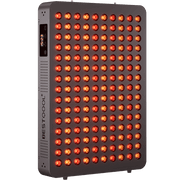
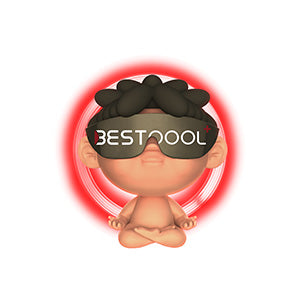








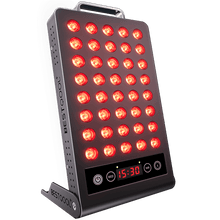
 Small
Small
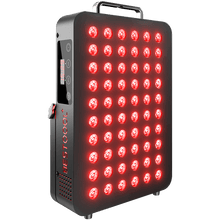
 Moderate
Moderate
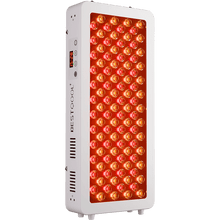
 Moderate
Moderate
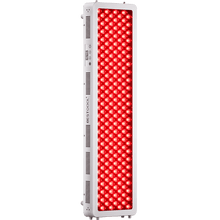
 Moderate
Moderate
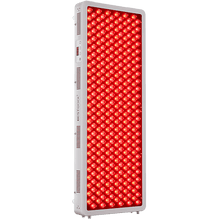
 Full
Full



